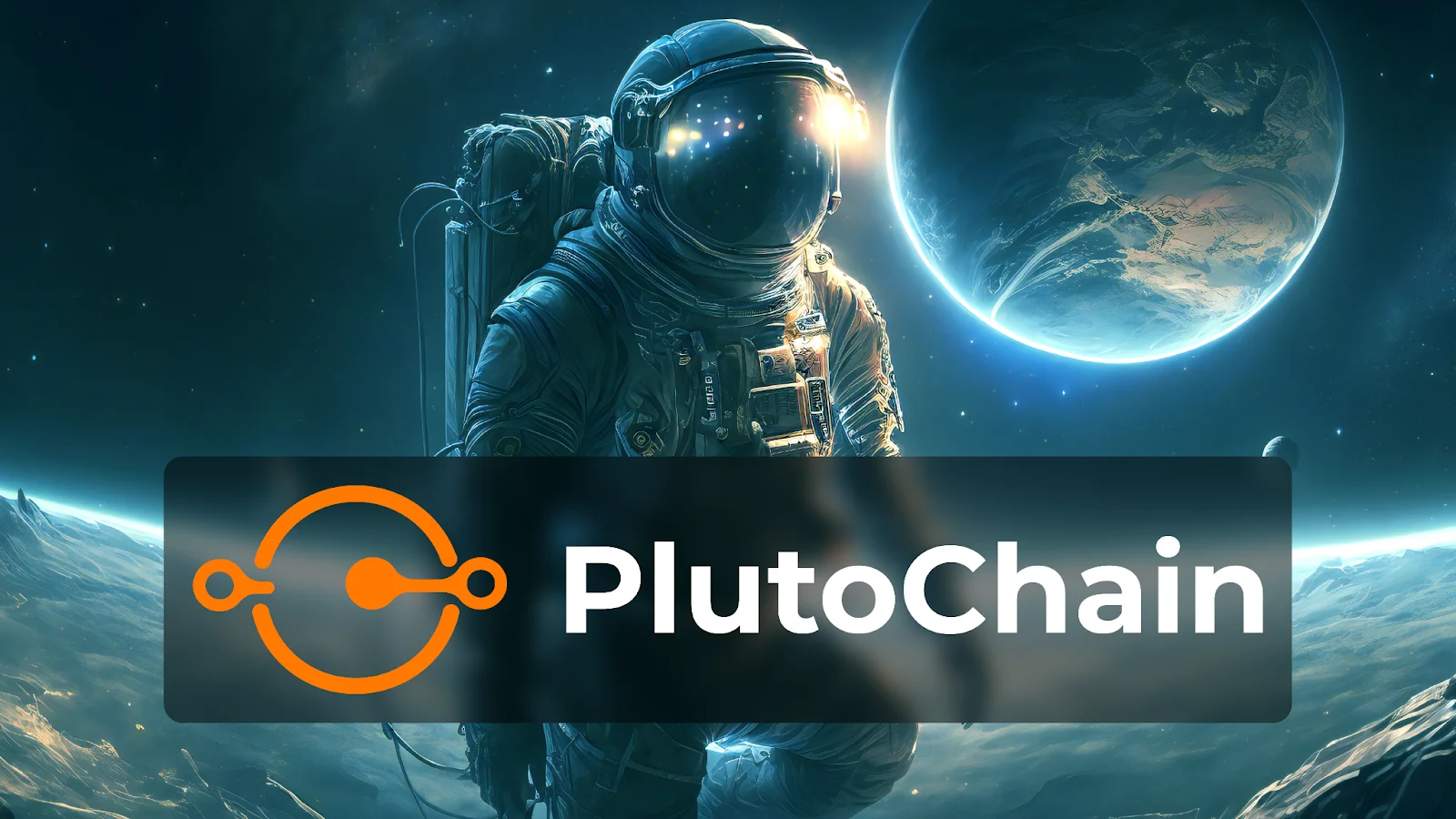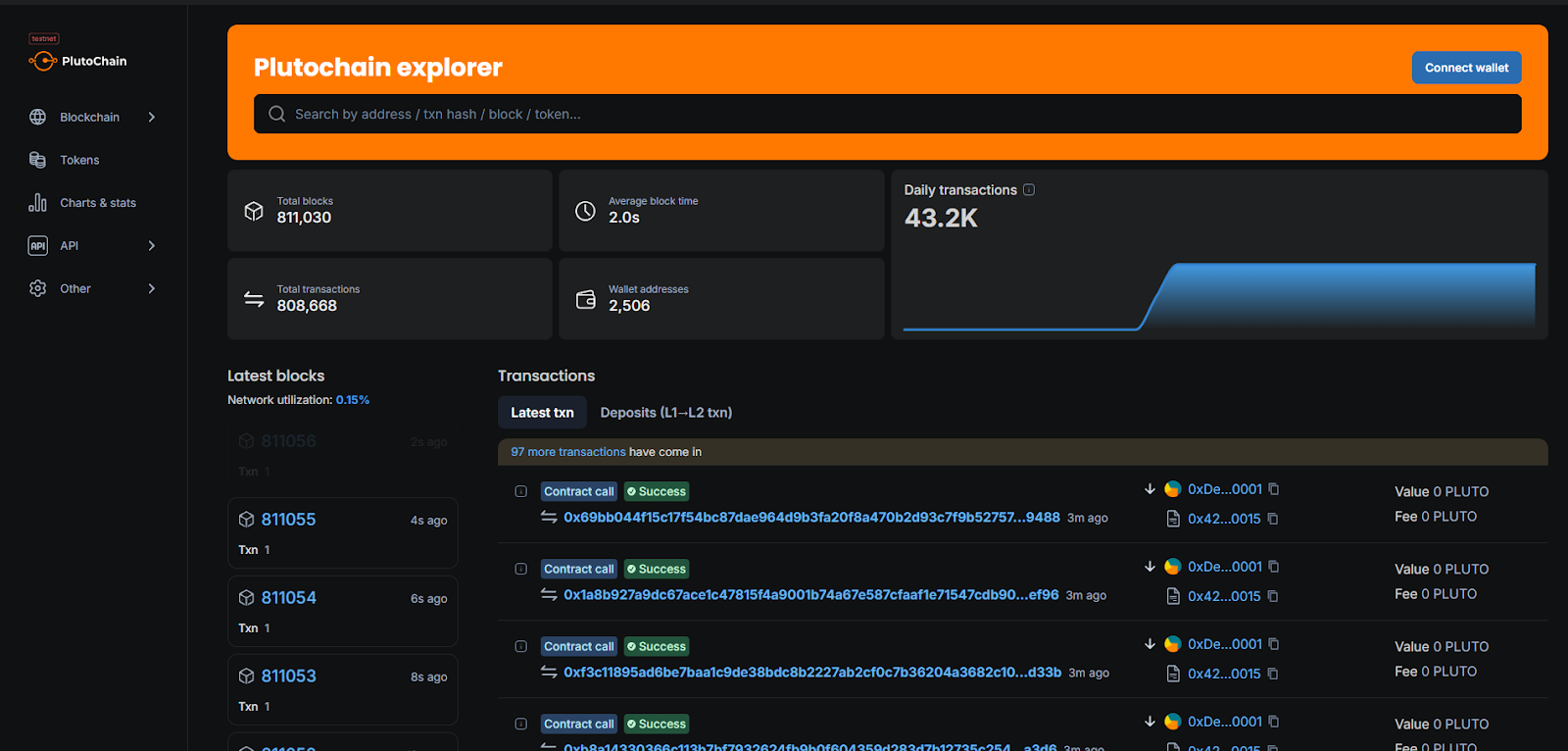Cryptocurrency is a high-risk asset class, and investing carries significant risk, including the potential loss of some or all of your investment. The information on this website is provided for informational and educational purposes only and does not constitute financial, investment, or trading advice. For more details, please read our editorial policy.
New Crypto Presales Gaining Momentum: Qubetics and Lightchain AI Leading the Pack
13.02.2025 20:00 4 min. read Alexander StefanovWe may earn commissions from affiliate links or include sponsored content, clearly labeled as such. These partnerships do not influence our editorial independence or the accuracy of our reporting. By continuing to use the site you agree to our terms and conditions and privacy policy.

New presale projects are emerging with fresh ideas to address some of blockchain’s biggest challenges.
On the other hand, PlutoChain ($PLUTO), a hybrid Layer-2 solution, could attract attention for its role in enhancing Bitcoin’s functionality. With instant transactions, reduced fees, and seamless Ethereum compatibility, it could tackle Bitcoin’s ongoing scalability challenges.
This publication is sponsored. CryptoDnes does not endorse and is not responsible for the content, accuracy, quality, advertising, products or other materials on this page.
PlutoChain ($PLUTO): The Hybrid Layer-2 Solution That Could Finally Make Bitcoin User-Friendly
Bitcoin is the world’s most recognized cryptocurrency, but using it for everyday transactions isn’t easy. Slow processing times, high fees, and limited functionality make it impractical for most people.
PlutoChain ($PLUTO) could fix these issues. As a hybrid Layer-2 solution, it’s designed to make Bitcoin faster, cheaper, and more versatile for real-world use.
Right now, Bitcoin’s block times take around 10 minutes to confirm. PlutoChain, with its 2-second block times on its Layer-2 network, presents a major upgrade. This time difference could allow for near-instant payments and smoother international transfers.
Lower fees are another major benefit. High Bitcoin transaction costs often make small purchases inefficient, but PlutoChain’s reduced fees could make payments affordable and accessible for businesses and individuals.
But, PlutoChain isn’t just about payments. It supports Ethereum Virtual Machine (EVM) compatibility, meaning it could bring DeFi, NFTs, and AI-powered blockchain applications to the Bitcoin network. This would expand Bitcoin’s role beyond just a digital store of value.
Security is a priority. PlutoChain has been audited by SolidProof, QuillAudits, and Assure DeFi, with continuous testing to ensure reliability and protection against threats.
Scalability is another advantage. In testing, PlutoChain processed over 43,200 transactions in a single day without congestion, which shows it can handle high demand.
Unlike Bitcoin’s governance, where miners and developers make the key decisions, PlutoChain puts control in the hands of users by allowing them to propose and vote on upgrades. This creates a more community-driven approach to blockchain innovation.
Qubetics ($TICS): A Potential Fix for Cross-Border Payment Issues
Most crypto projects claim to offer something new, but few actually solve real problems. Qubetics ($TICS) aims to address a major challenge—cross-border transactions.
Sending money across countries has never been easy. Traditional banks are slow, expensive, and often unreliable, leaving individuals and businesses frustrated with delays and high fees.
Qubetics is looking to change that. By using blockchain technology, it aims to speed up transactions and cut costs, making international payments more practical. Unlike many cryptocurrencies that struggle with scalability, this project is focused on building a system that can handle high transaction volumes without congestion.
While it’s still early, Qubetics could offer a more efficient alternative to traditional finance. Whether it becomes a real solution for global payments remains to be seen, but its approach to faster and cheaper cross-border transactions makes it one to watch.
Lightchain AI (LCAI): The Blockchain Built for AI-Powered Transactions
Lightchain AI is a blockchain project designed to integrate artificial intelligence into decentralized applications. At its core is the Artificial Intelligence Virtual Machine (AIVM), which allows AI-driven tasks to run smoothly on the blockchain.
Unlike traditional networks, Lightchain AI uses a Proof-of-Intelligence (PoI) system, where nodes are rewarded for performing AI computations like model training and optimization. This approach enhances both security and AI development.
The platform also prioritizes transparency with an open, auditable AI framework and gives token holders a say in governance decisions.
With over $15.3 million raised in its presale, Lightchain AI is gaining investor support.
Final Thoughts
Qubetics ($TICS) aims to improve cross-border payments by making them faster and more affordable, while Lightchain AI is integrating AI into blockchain to boost transaction processing, security, and scalability.
On the other hand, PlutoChain ($PLUTO) could expand Bitcoin’s functionality. With its fast 2-second block times, lower fees, and smart contract support, it offers a potential solution to Bitcoin’s scalability issues.
This publication is sponsored. CryptoDnes does not endorse and is not responsible for the content, accuracy, quality, advertising, products or other materials on this page. Readers should do their own research before taking any action related to cryptocurrencies. CryptoDnes shall not be liable, directly or indirectly, for any damage or loss caused or alleged to be caused by or in connection with use of or reliance on any content, goods or services mentioned.
-
1
Is BTC Bull Token the Best Crypto Presale? Bitcoin Airdrops, Token Burns, and BTCBULL Rewards
25.06.2025 10:40 4 min. read -
2
Best Altcoins to Buy Now: 5 Low-Cap Cryptos That Could Explode in Q3
25.06.2025 23:39 5 min. read -
3
Best Crypto to Buy Now As $1B Sell-Off Crashes the Market – Buy The Dip Coins
24.06.2025 12:21 8 min. read -
4
Best Crypto Presales to Buy for Q3: 4 Promising ICOs
24.06.2025 17:55 5 min. read -
5
Best Crypto Presales That Whales Are Adding to Their Portfolios for July
27.06.2025 17:05 6 min. read
Best Crypto Presales: BTC Bull Token Raises $8 Million, Just 48 Hours to Go Until Exchange Launch
One of the most talked-about new meme coin launches of 2025, BTC Bull Token (BTCBULL) has already raised over $8 million through its presale, signalling huge investor confidence. BTC Bull Token stands out by tracking Bitcoin’s performance and rewarding BTCBULL holders whenever BTC hits specific milestones for the first time. The concept blends meme coin culture […]
Best Crypto to Buy Now as Trump’s Vietnam Deal Ignites Bitcoin and Stocks
When U.S. President Donald Trump made a historic trade deal with Vietnam, cutting tariffs on Vietnamese goods from 46% to 20%, world markets stirred into action. Bitcoin surged more than 3% as institutional investors welcomed lowered friction in international trade, and the Nasdaq and S&P 500 rose in tandem. BREAKING: Trump announced a trade deal with […]
Best Crypto to Buy Now as BlackRock Bitcoin ETF Outvalues S&P 500 Fund
BlackRock’s iShares Bitcoin Trust (IBIT) has quietly surged past the asset manager’s flagship S&P 500 ETF (IVV) in annual fee revenue, upending long‑standing expectations in the traditional fund world. #BlackRock’s Bitcoin ETF now generates more revenue than its S&P 500 ETF. pic.twitter.com/UhvEIbC1jM — Christiaan (@ChristiaanDefi) July 2, 2025 This shift matters because it signals institutional money […]
Best Crypto Presale to Buy in July: Why BTC Bull Token is Set for Massive Gains
The BTC Bull Token presale is almost over. With less than five days left, this is the last chance for buyers to secure a lower price before the token goes live. The project’s raised amount will breach the $8 million mark any minute now, showing a notable uptick in investor support in the final presale […]
-
1
Is BTC Bull Token the Best Crypto Presale? Bitcoin Airdrops, Token Burns, and BTCBULL Rewards
25.06.2025 10:40 4 min. read -
2
Best Altcoins to Buy Now: 5 Low-Cap Cryptos That Could Explode in Q3
25.06.2025 23:39 5 min. read -
3
Best Crypto to Buy Now As $1B Sell-Off Crashes the Market – Buy The Dip Coins
24.06.2025 12:21 8 min. read -
4
Best Crypto Presales to Buy for Q3: 4 Promising ICOs
24.06.2025 17:55 5 min. read -
5
Best Crypto Presales That Whales Are Adding to Their Portfolios for July
27.06.2025 17:05 6 min. read




